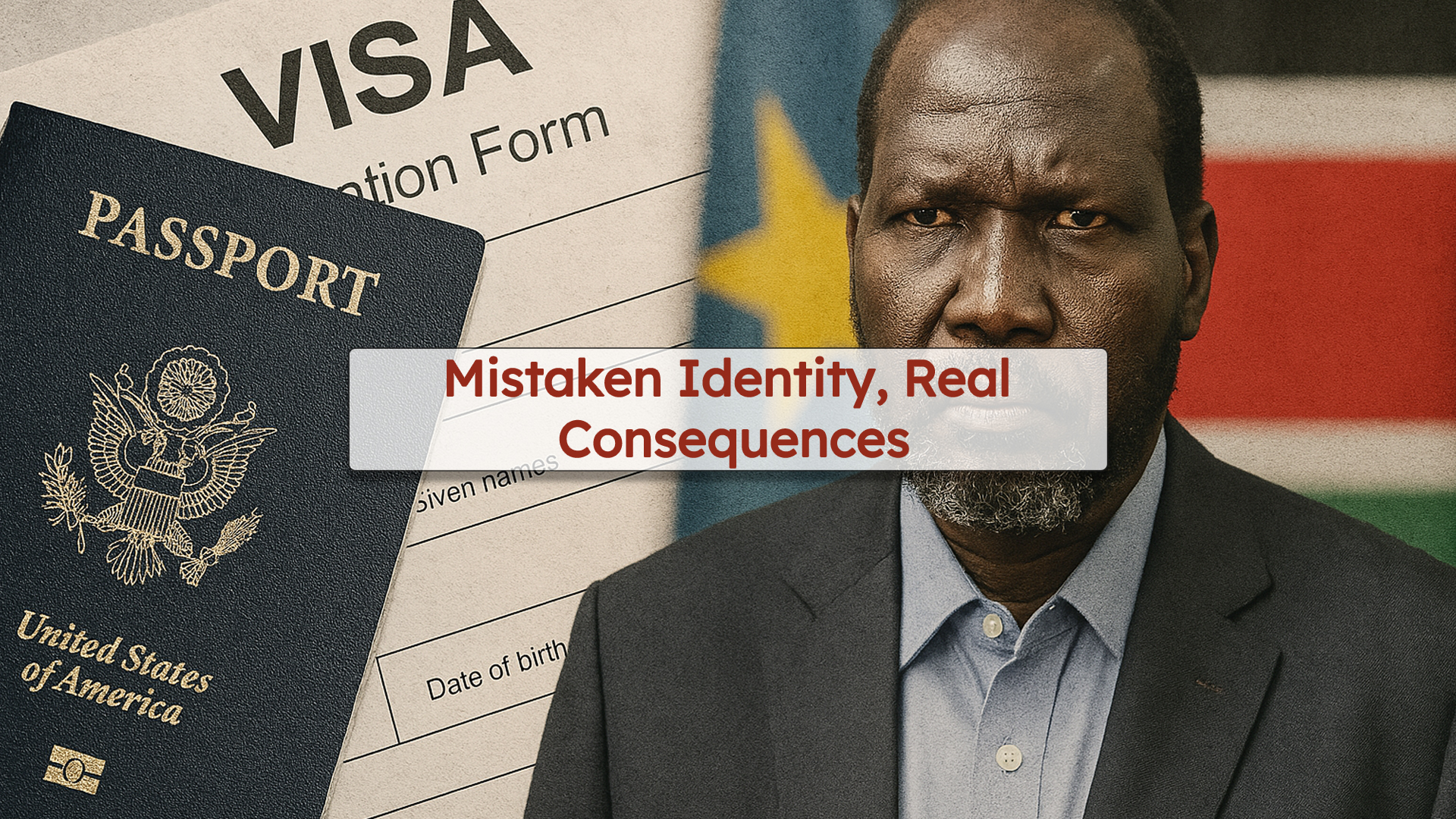In early April 2025, the United States revoked all visas held by South Sudanese nationals and suspended the issuance of new ones, citing South Sudan’s alleged failure to accept repatriated citizens. U.S. Secretary of State Marco Rubio stated that this decision was due to South Sudan’s refusal to accept its deported citizens, which he described as exploitative.
The South Sudanese government contested this action, asserting that the U.S. decision was based on a case of mistaken identity. They highlighted a specific incident involving an individual deported by the U.S., whom South Sudan refused entry, claiming he was not their citizen but a national of the Democratic Republic of Congo (DRC). South Sudan identified the man as Makula Kintu from North Kivu, DRC, contradicting U.S. records that identified him as Nimeiri Garang based on documents verified by South Sudan’s embassy in Washington.
This diplomatic dispute has raised concerns about the broader implications of the U.S. visa revocation. Notably, Duke University basketball star and top NBA draft prospect Khaman Maluach, a South Sudanese national, may face deportation under the new policy. Duke University acknowledged the directive and is assessing its potential effects on Maluach and other South Sudanese students.
The visa revocation comes amid escalating tensions and renewed violence in South Sudan, with fears of a possible return to civil war. The U.S. maintains that visa provisions will only be reinstated when South Sudan fully cooperates in adhering to deportation agreements.


